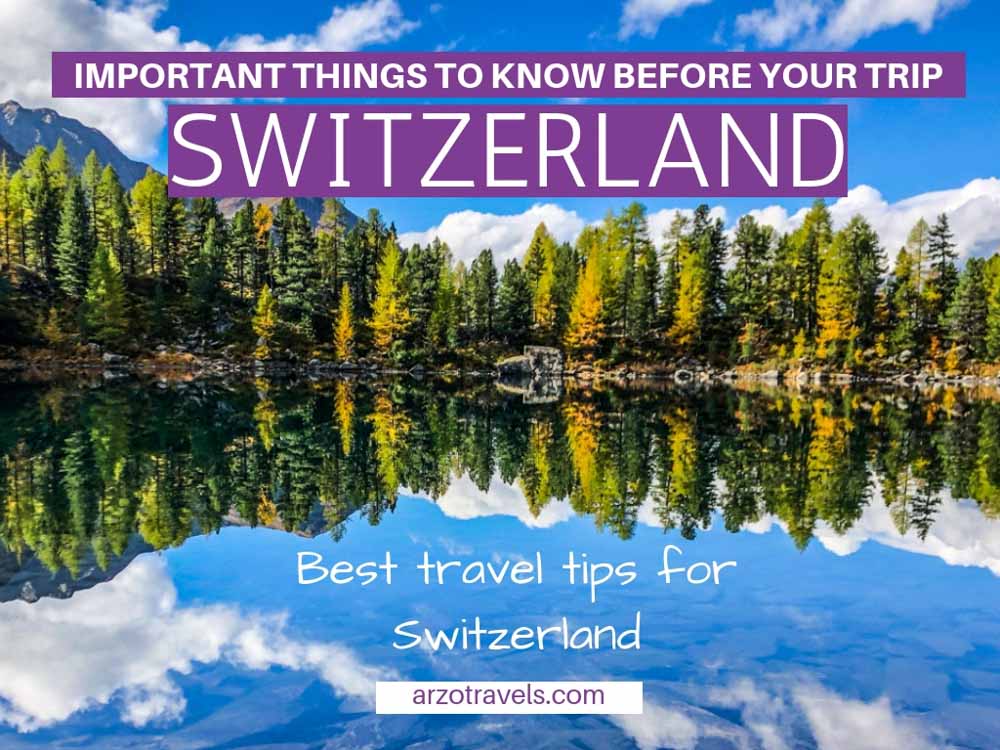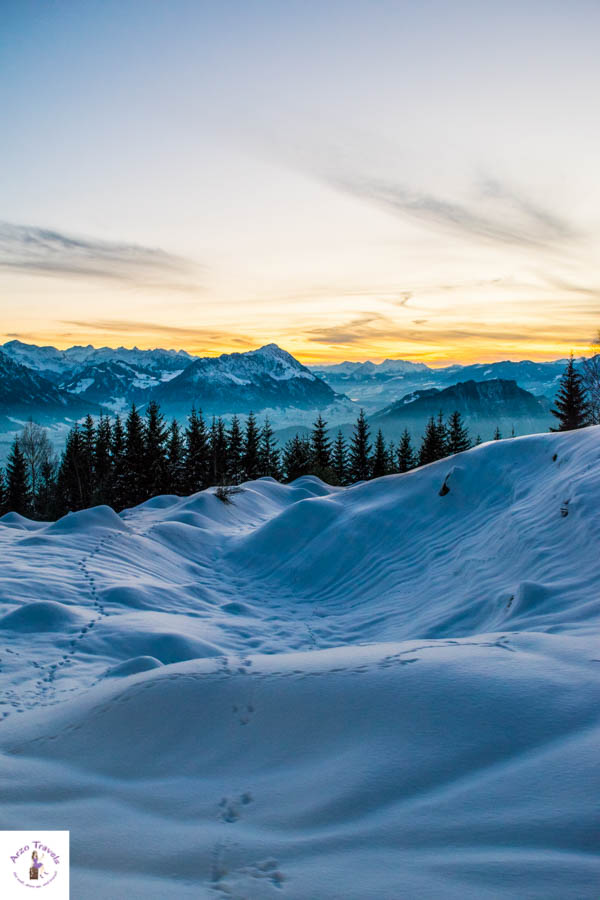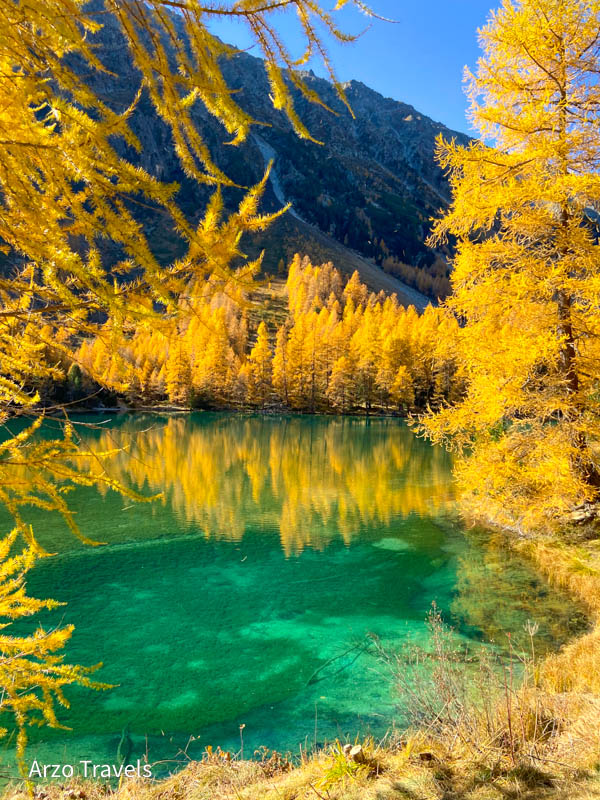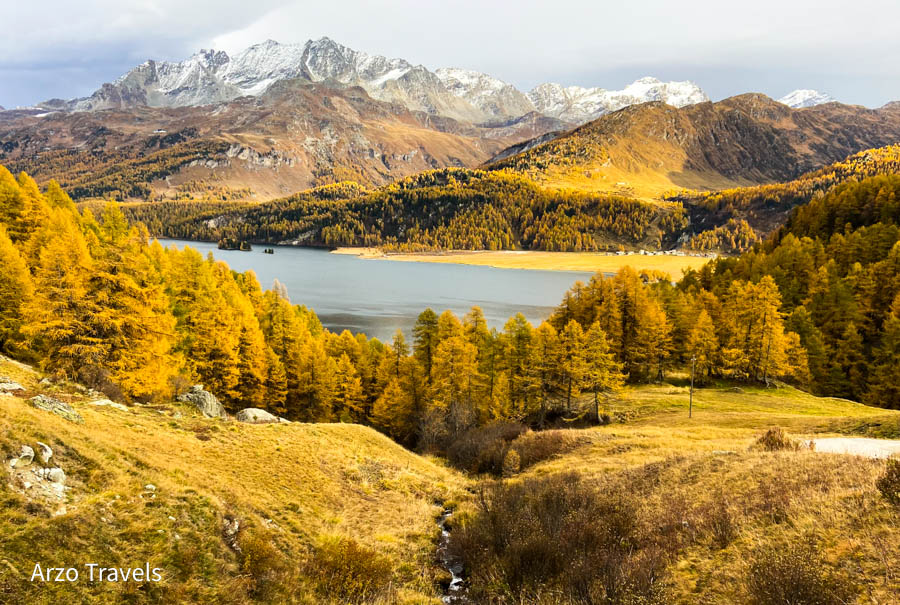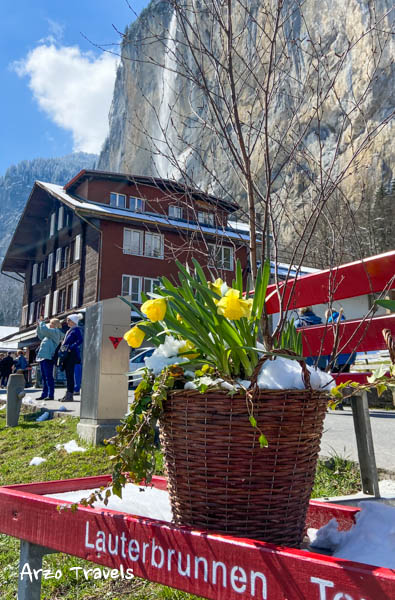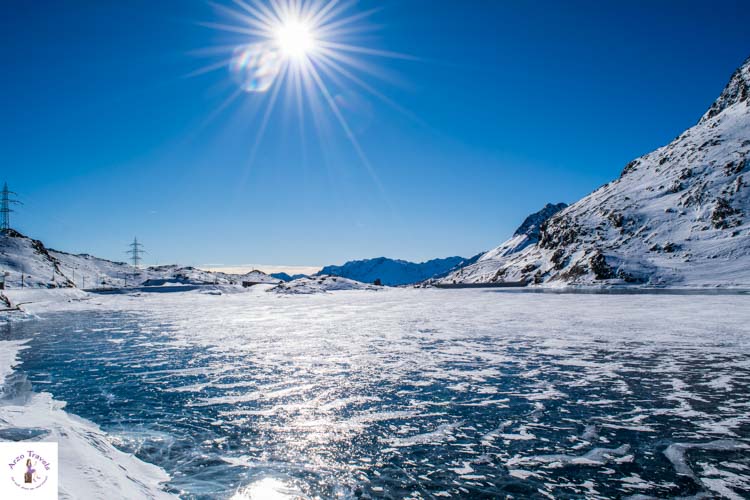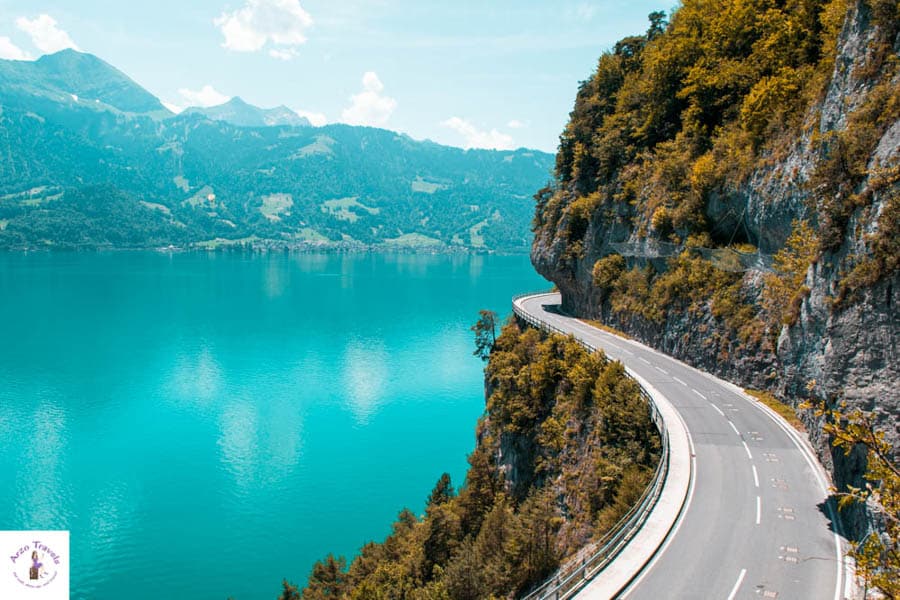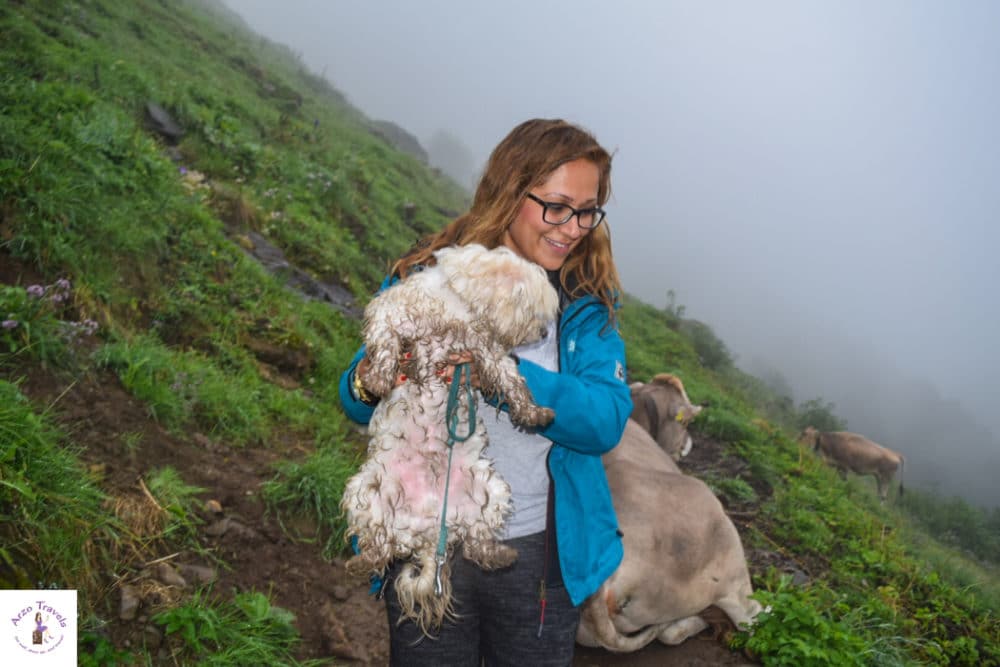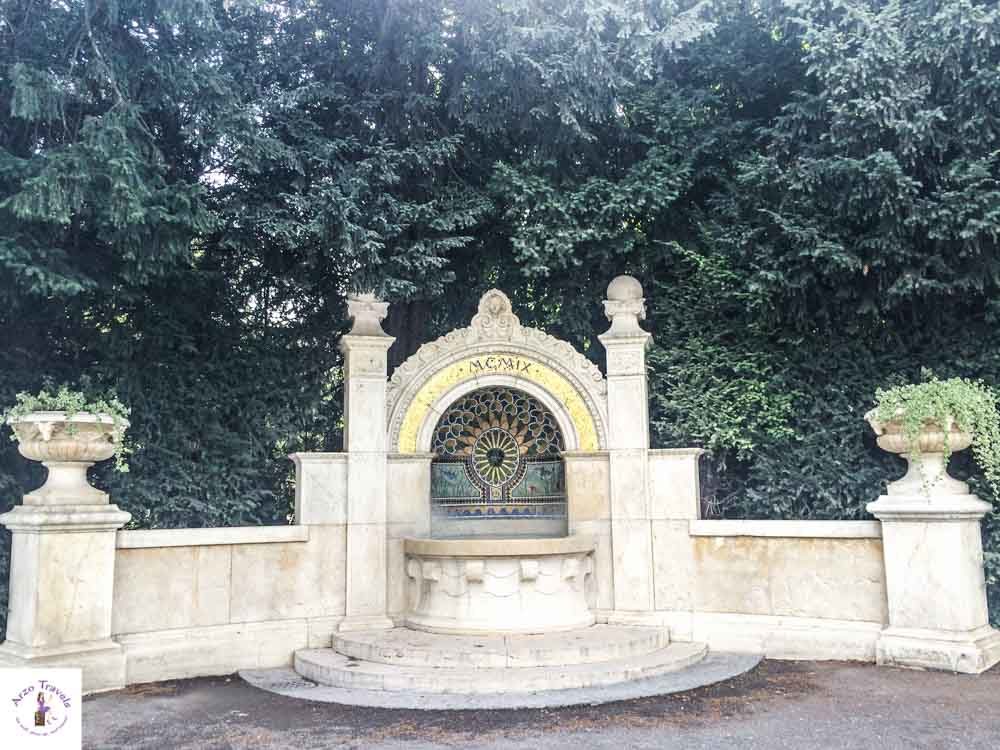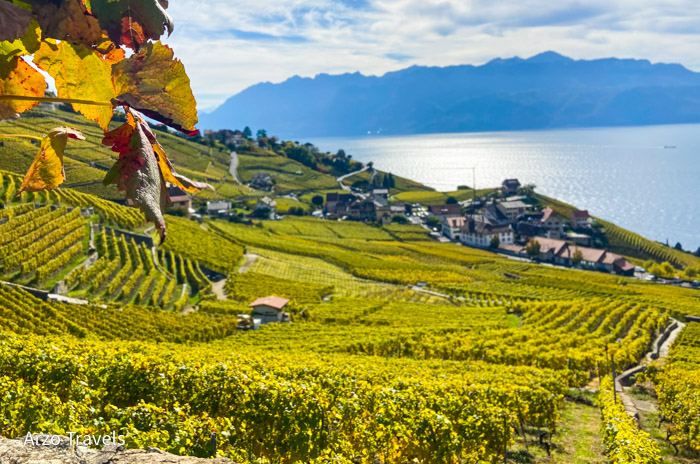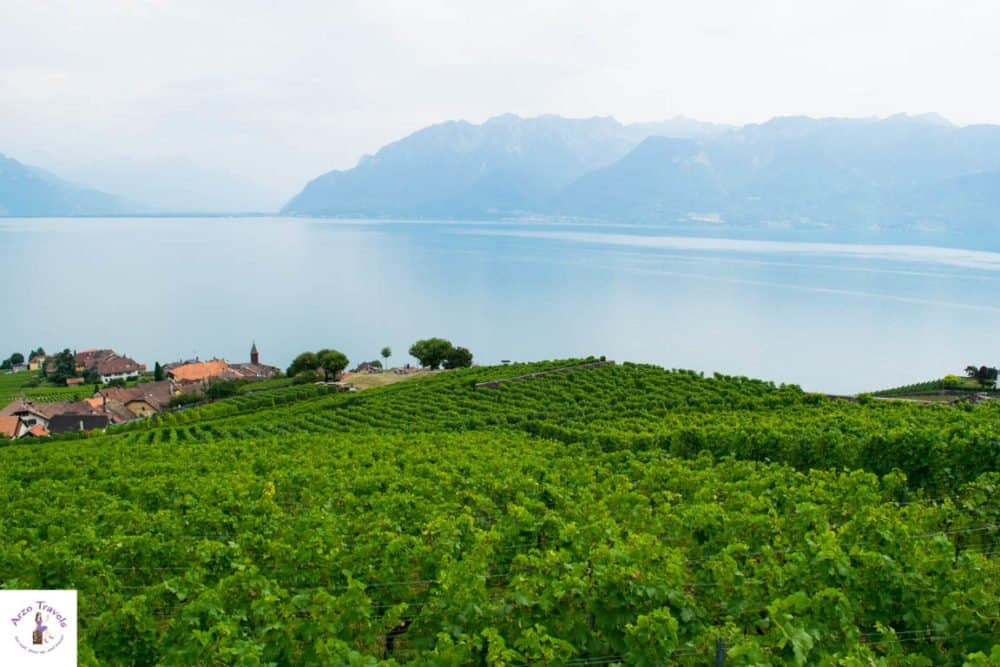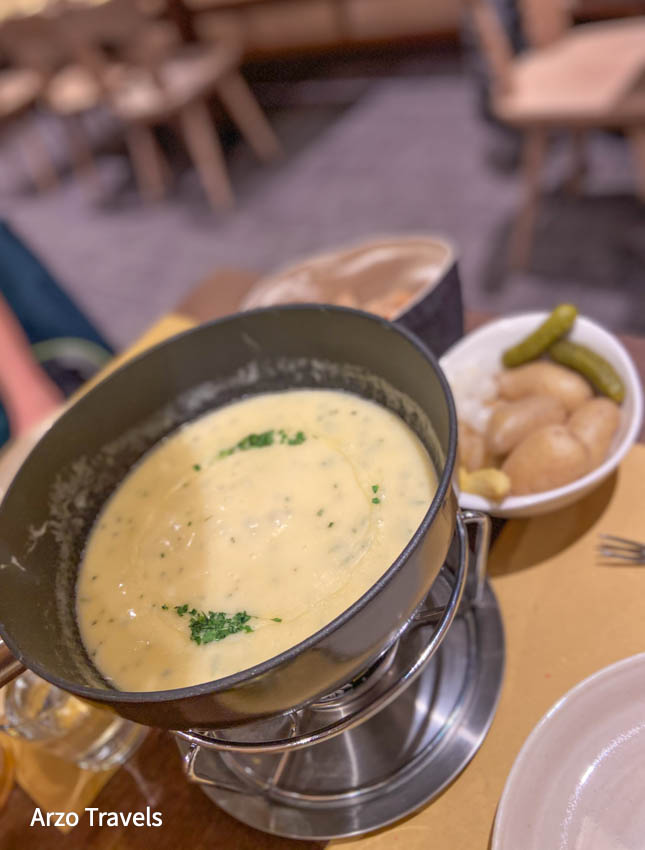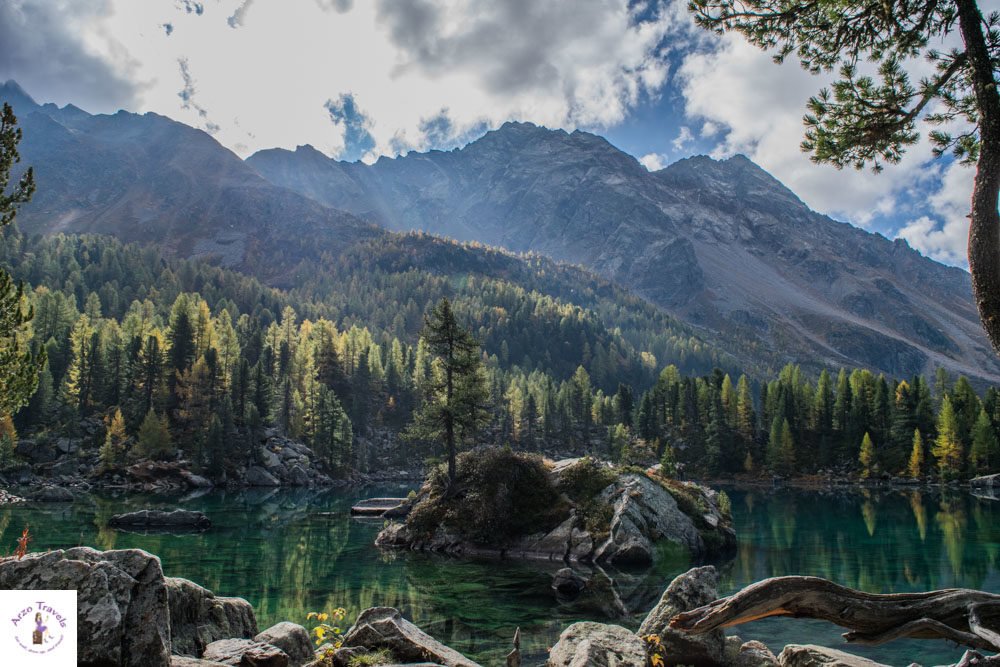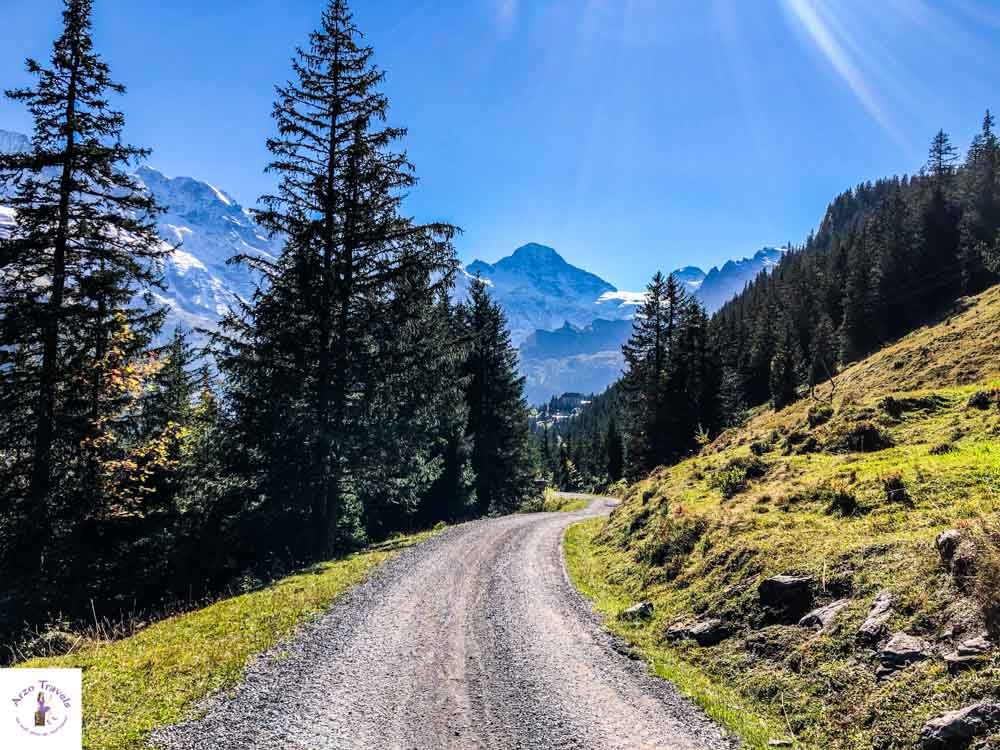SWITZERLAND TIPS – THINGS TO KNOW BEFORE VISITING
Switzerland is one of the most beautiful countries in the world and my personal favorite. I am not sure how many months I have spent in Switzerland so far – but it must have been at least about 18 months over the past 14 years.
Once you have seen the gorgeous lakes, stunning Swiss Alps, and lovely cities and towns, you’ll know why. The beauty is beyond imagination.
If you are heading to Switzerland soon and wondering about the best Switzerland travel tips, then this post is for you. Here are the most important things to know before traveling to Switzerland for the first time.
BEST TRAVEL TIPS FOR SWITZERLAND
Here they are…the best Switzerland travel tips.
Languages in Switzerland
Let´s start with the languages in Switzerland. Switzerland is a multilingual country with four official languages: German, French, Italian, and Romansh.
German is the most widely spoken language, with around 65% of the population using it as their first language. Especially in the northern, eastern, and central parts of Switzerland, German is the main language. This includes areas like Interlaken, Zurich, and Bern.
French is spoken by roughly 18% – especially in the western and southern parts of Switzerland. This includes areas like Geneva, Lausanne, and Zermatt.
Italian is the main language of about 8% – and it is mostly spoken in southern Italy, the canton of Ticino (like Lugano and Locarno), and parts of Grison. Romansh is spoken by 0.5% – in some parts of Grison.
English is also widely spoken, with many Swiss people able to communicate in it more or less fluently.
In addition, Switzerland has a vast array of minority languages, with over 70 different dialects spoken throughout the country.
People in Switzerland
Well, this is no fact but just my own perception. Swiss people are quite nice. They are more reserved than other Europeans and – overall – they are not very outgoing, but they are friendly and polite; just not that warm and welcoming.
You will find, however, that they are friendlier in the Italian part, and in contrast, more reserved in the French part (that is my impression and reflects a bit of what I have experienced in Italy and France). So, don’t worry if people are short-spoken, that’s just how they are.
They also don’t like confrontations and will expect you to criticize politely and not be overly direct.
Best Time to Visit Switzerland
When it comes to the best time to visit Switzerland, the answer is any time! That is the short answer. The longer answer is: It depends on what you’re looking for in your vacation.
Generally, the warmest and driest months are July and August, making this the perfect time for outdoor activities such as hiking and biking. However, if you’d prefer to enjoy winter activities such as skiing and snowshoeing, then December to March is the best time to visit.
In December there are many beautiful Swiss Christmas Markets in the cities and towns (if you want to visit Switzerland in the winter check out my winter guides):
- Best things to do in the winter
- Best ski resorts in Switzerland: Verbier
- Best family ski resort in Switzerland: Grachen
- Lucerne in the winter
- Basel – winter itinerary
I advise visiting in May, June, September, and early October because prices are lower and it’s not as crowded in popular tourist spots, like Interlaken. I have stopped relying on seasons – I have had terrible weather with heavy rains in the summer months (July and August) and great weather in October. So, while seasons can give you a tendency weather is not really predictable.
Scenery-wise fall is probably my favorite season. It just gets beyond stunning. All the foliage is beyond gorgeous. Check out my Switzerland in fall guide for more info.
Weather in Switzerland
The weather in Switzerland can be very moody. In the summer, there can be weeks of bad weather at a time, when it is raining every day and almost all day.
Then I visited in October several times and had lovely, warm, sunny days.You just can’t rely on the weather here. But typically, July and August are the hottest months. The Italian-speaking area in the south is hotter than the rest of the country most of the time. Winter usually starts in November and the winter season can last up to April in some regions.
Public Transportation in Switzerland
Switzerland has the best public transportation ever – I mean seriously, it is just amazing!
Whether you’re visiting Swiss cities or exploring the countryside, getting around is easy with bus, train, boat, and cable car services available throughout the country.
The Swiss Federal Railways (SBB) offers an extensive network of trains that connect cities, towns, and villages throughout Switzerland. The Swiss Travel System offers a range of travel cards you can use on all forms of public transport, giving you unlimited travel for your chosen time period.
In addition to train services, there is also an extensive network of buses and boats in Switzerland. Many routes are operated directly by the SBB, while others are operated by private companies. Bus and boat services offer a great way to explore the country’s stunning natural scenery.
Cable cars also provide an easy way to get around in some areas of Switzerland. In particular, cable cars are popular in mountainous regions such as Zermatt and Interlaken. Most cable car services run all year round, although some close during the winter months, or in the shoulder seasons (October/November and March/April/May).
Public transportation in Switzerland is a great way to get around and explore the country’s stunning natural beauty. With reliable and affordable services available throughout the country, getting from one place to another has never been easier!
Train Travel in Switzerland
Train travel in Switzerland can be the most beautiful you can experience, but make sure you ask for scenic trains (called express or panorama trains) so that you have the best scenery.
Trains can be expensive, but because they are on time and provide such great scenery as you travel, they are worth it.
The express trains are not always the fastest connections – though the expression might be confusing. However, the express trains are the most scenic and amazing routes you can imagine.Here are some of my favorite train rides in Switzerland:
Bernina Express – OMG! The Bernina Express is one of Switzerland’s most popular tourist attractions. This scenic, panoramic train journey offers breathtaking views of the Swiss Alps as it snakes its way from Chur to Tirano, Italy.
The route passes through some of Switzerland’s most picturesque landscapes, including the stunning Bernina Pass. Along the way, you’ll pass over viaducts, through tunnels, and past glaciers. The Bernina Express is an unforgettable experience that will leave you mesmerized by its majestic beauty. Here is more on this gorgeous train ride.
The Glacier Express is another stunner. This iconic railway journey takes you on an 8-hour trip through the beautiful Swiss Alps, from St. Moritz to Zermatt. Along the way, you’ll experience stunning views of towering mountains and glaciers, cascading waterfalls, and lush forests. The journey passes through 91 tunnels and over 291 bridges, giving you plenty of opportunities to take in the breathtaking scenery.
More Swiss train rides will leave you speechless – believe me, I am a self-certifies Switzerland train expert, and yet I am still always in awe when I look out of the window.
Driving in Switzerland
Driving in Switzerland and road-tripping in Switzerland is another fantastic way to explore Switzerland.
Switzerland is a dream destination for any road trip enthusiast, with its winding roads and picturesque landscapes. Driving through this country’s stunning mountain passes and lush valleys is an experience you won’t soon forget.
Here are some very general tips for driving in Switzerland:
Do not speed – speeding is expensive in Switzerland (as is illegal parking) and other wrongdoings.
You will need to buy a toll sticker if you want to use the highways. They cost about $40 for a year (unfortunately, you can’t get them for less than a year, but they are normally included if you get a rental car).
Check out my Switzerland road trip guide or my tips on driving tips in Switzerland for more detailed info.
If I had to name the best place for a road trip then it would be Switzerland!
Style in Switzerland
The Swiss people generally dress up more than those in other countries, especially in the Italian part. And while it’s not the fashion hotspot, people dress well and wear luxury brands often.
Consider wearing comfortable, but stylish, shoes while in Switzerland. You’ll probably be walking a lot, but don’t want to feel like you’re dressed too casually.
In rural areas, it is, of course, a bit different and you might easily feel overdressed when dressing up.
Electricity in Switzerland
If you’re planning to travel to Switzerland, it’s important to note that the power outlets run on 230V/50 Hz.
Most power sockets are designed for three-pin round plugs. The standard continental-type plug with two round pins, applied for many electrical travel products, may be used without a problem.
And in case, you do not have one/forget yours, it might be worth asking at the hotel reception – they often have adopters.
Safety in Switzerland
I have to say, that traveling in Switzerland feels amazing – it is safe whether you travel solo or with children, or with whomever.
Crime levels are low and the Swiss police force is reliable and efficient. Personal safety isn’t usually an issue here and you can generally feel secure while exploring the country’s natural beauty. That being said, it’s still important to be aware of your surroundings at all times and take simple precautions such as avoiding dark and deserted areas at night.
You should also familiarize yourself with local laws and customs before traveling so you can avoid any potentially unpleasant situations.
I go as far as saying, that Switzerland is one of the safest places in Europe – maybe even in the world! Thus, I highly recommend Switzerland as a solo travel destination.
Just watch out for the cows that might stand in your way and don’t even bother to move. Or worst case scenario, they chase you (yes, this has happened a couple of times, and though they were actually chasing my little dog for unknown reasons, I had to find out, that I am a pretty fast runner, too if I have to).
Drinking Water in Switzerland
Clean water is a human right and while some Swiss companies disagree and exploit water supplies in other countries, Switzerland is perfect for those who love natural water.
Switzerland is known for having some of the highest-quality water in the world! So if you’re ever feeling parched, make sure to head straight for this beautiful country and have a refreshing drink.
About 80% of the drinking water comes from under our/your feet in Switzerland- and thanks to groundwater protection zones, half of it is so clean it does not even need to be “treated”! Now that’s something to raise a (water) glass for!
But my best tip is to always have an empty bottle with you to refill with fresh mountain water from the many fountains dotted all over Switzerland (seriously, they are basically everywhere).
Mountain water is free -bottled water can be expensive as heck in Switzerland and do we not all love to save some money and rather spend it on more fun things? It is an easy way to save money on your Switzerland vacation.
It is also tastier than bottled water! Also, it is much, much better for the environment!
Tip: Many fountains have a date on them – that tells you the date of the fountain. You might be surprised how old some of the fountains are (some are so pretty they are attractions by themselves).
Currency and Credit Cards in Switzerland
The currency of Switzerland is the Swiss Franc (CHF). My main Switzerland travel tip is to always recommend having some cash (and coins in particular) – for parking e.g. but some smaller shops (or in rural areas) also do not always accept credit cards.
And, unfortunately, American Express is not as widely accepted as Visa or MasterCard.
Money in Switzerland
There is no getting around it – Switzerland is one of the most expensive countries in the world. If you are trying to save money though, I have a post on how to do Switzerland on a budget that you can check out. It will never be a cheap destination, but it is worth visiting.
The currency is the Swiss Franc (CHF). 1 CHF equals about $1,10 or 1,03 € (March 2024).
Everything but water is expensive in Switzerland. Food in Switzerland is pricey, too, especially meat and dairy because the animals are free-range. I have heard that McDonald’s menu items can cost about 20 CHF, but normally menus from this fast-food restaurant (which we all use as a parameter, do not we?) are about 12-18 CHF. My vegan Mc Chicken menu (that I always order) is only about 12-14 CHF.
In restaurants, the cheapest plate is typically about 22 CHF. This is a dish of pasta with tomato sauce. However, I know, there are – on rare occasions – cheaper places.
A generic cappuccino is 5 CHF (this is not the expensive Starbucks cappuccino or any fancy var/restaurant). A scoop of ice cream will cost you about 3 CHF in many parts of the country.
Tipping in Switzerland
Tipping in Switzerland is not expected! I know, there are countries in the world, like Japan, where tipping is considered an insult, but in Switzerland, you want you can always tip and it is appreciated. However, the unofficial “minimum wage” (about $23 an hour) is very good, so tipping is not really a must. Switzerland is the only country in the world where I do not tip – I do round up in restaurants though.
Wine in Switzerland
Switzerland is a wine country, so don’t be surprised to see a lot of vineyards. When it comes to these vineyards, I rather focus on the beauty of looking at them. However, I know I do have some readers who want to know more about Swiss wine.
You’ll find something to love in each of Switzerland’s six unique wine regions! From light Pinot Noir grown along Lake Geneva to full-bodied Blauburgunder from the Bündner Herrschaft – whatever your taste is, you will be sure to experience exceptional Swiss wines.
Valais leads the way when it comes to quantity – they make up one-third of total production. Vaud comes in close behind them as a major contributor too. But don’t count out the Three Lakes region (Neuchatal, Murten, and Biel) – although their contribution may be small, you know what they say: quality over quantity!
While Swiss wine is not as famous as Italian or French, they do produce some lovely reds and whites that you can try while you’re here.- 148 million 750ml bottles of Swiss wine were produced in 2019
- Per capita, the Swiss drank 38 750ml bottles of wine each year in 2018.
Find out about the famous vineyards at Lake Geneva and read my Montreux itinerary.
Food in Switzerland
Traditional Swiss food is hearty and flavorful, often featuring cheese and potatoes, and a lot of meat. Fondue is a popular dish in Switzerland – it’s a pot of melted cheese that you dip pieces of bread into. Another typical Swiss dish is rösti, which is made with shredded potatoes and fried to a golden crisp.
Raclette is another popular cheese dish, served with boiled potatoes and pickled onions.
The quality of food in Switzerland is overall good. Many products, like meat, cheese, etc. are locally sourced. Yes, the Swiss love their meat, despite the price, and have a lot of meat and cheese in their diet.
Thus, if you are vegan or vegetarian, you may have a hard time. In Zurich, you’ll be pleasantly surprised to find a great variety of vegetarian and vegan restaurants. But in many other places, the max. you get a pasta dish with tomato sauce if you are looking for something vegan/vegetarian. However, as in most parts of the world. this is also changing and more and more vegan/vegetarian-friendly options are available.
Also, while the quality of the food is high, you may also be surprised that the Swiss use a lot of MSG, even placing some on the tables at restaurants (however, I have noticed this more in rural areas).
So, another of my Switzerland travel tips is – at least if you are picky with food (like me) then book your own place if you stay longer so you can – on some days – cook your own food in some smaller places where the choices of food are limited.
Hidden Gems in Switzerland
One of the best Switzerland travel tips I can give you: the country is so rich in beautiful places that you can visit almost any place and will not be disappointed.
Since Switzerland is such a popular place to visit, there are a lot of tourist attractions that gather crowds. But there are still some hidden gems that you can see if you’re willing to look a little deeper for them, like Flims and Susten Pass or Valposchiavo.
Of course, how could it be any different, I have a post on my favorite hidden gems in Switzerland.Hotel and Accommodations in Switzerland
Most areas in Switzerland charge a tax, usually 1-3 CHF a day which is not always included when you book your hotel. Some also provide you with a city guest card, which is great because it allows you to use public transportation within the city for free.
The standard in Switzerland is not bad, but many 3 and even 4-star hotels are old-fashioned (and I do not mean the cute chalets). So, if you prefer brighter or modern accommodations, read the descriptions carefully.
Of course, Switzerland is also home to some amazing hotels as well as hostels. Airbnb is also quite common (though, if not an official accommodation you might not get a guest card which could help you save money). Here is my “Where to stay in Switzerland guide”
Traveling with a Dog in Switzerland
Switzerland is very dog-friendly, with lots of outdoor places. Dogs love it (I just guess so) and it’s a lot of fun to take them along.
There are plenty of plastic bags conveniently provided for clean-up, and many restaurants and hotels allow you to bring dogs in.
However, you cannot take dogs to museums or some other places (even if you carry them in a bag).
If your dog is small and fits in a bag it can even travel for free in public transportation – if it isn’t in a bag, it will need a ticket (children’s ticket – which is about 50% of the regular price).
However, make sure that you check with the hotel you are staying at as to the amount of the pet fee ahead of time. They usually don’t mention it and you don’t want to be surprised when you get your final bill (the highest rate for my little dog – 30 CHF…for one night!). Here are more tips for visiting Switzerland with a dog.
Traveling with Children in Switzerland
Switzerland is an amazing destination to visit with your family – especially with children. I visited Switzerland with 5 nieces and nephews and the older ones just LOVED it. The two youngest cannot even remember but the three older keep asking me when we will visit Switzerland again.
If you are traveling with children, there are lots of parks, playgrounds, and outdoor trails here. The lakes, train rides, and cable cars, not to mention the activities, should keep them busy. I also recommend the open-air museum in Ballenberg as a fun place for kids.
Many activities with kids do not cost much (hiking and other outdoor activities). Most of the time you have to pay 50% of the regular prices for children.
Hiking in Switzerland
The Swiss love to hike. You will see tourists taking the cable cars up while the locals hike to the top, even the older ones.
The Swiss often spend their weekends’ hiking. Hiking seems to be the national activity of Switzerland. And having such stunning scenery in front of your door, this is not surprising!
Switzerland is a paradise for outdoor enthusiasts and hikers, with its stunning mountain ranges, lush forests, and crystal-clear lakes. Whether you’re an experienced hiker or just getting started, Switzerland has trails to suit every ability level.
Wear comfortable shoes or hiking boots for your hikes, and enjoy the lovely scenery. Here are more hiking tips in Switzerland for your Switzerland itinerary.
Public Holidays in Switzerland
If you’re planning a Swiss holiday, don’t forget to think about the Swiss holidays.
Switzerland has a range of public holidays, each celebrated in its own unique way. On New Year’s Day (January 1st), many cities will have a fireworks display and special events to mark the start of the new year.
The Swiss National Day on August 1st is one of the most important holidays in Switzerland, celebrated with parades and flags throughout the country. Easter is usually celebrated in April or May, depending on when it falls each year. On this day, many churches will offer special services and there are often festivals in villages and towns.
The most important Swiss holiday, however, is probably Christmas. Check out my guide on public holidays here.
Overall, Switzerland is full of unique public holidays that should not be missed! Whether you’re visiting for a day or an extended holiday,
FINAL THOUGHTS ON TIPS FOR VISITING SWITZERLAND
I hope that these Switzerland travel tips make your trip even more exciting and fun. The country is one of the best places to visit in Europe and you’ll no doubt have an amazing experience with these travel tips for Switzerland.
Read more:
- Here are my favorite places to visit in Switzerland (yes, it is a quite lengthy post but Switzerland has so many gorgeous places to see).
- Do you want to visit Switzerland and Austria in 10 days? Then check out my itinerary – Switzerland and Austria in 7-10 days.
